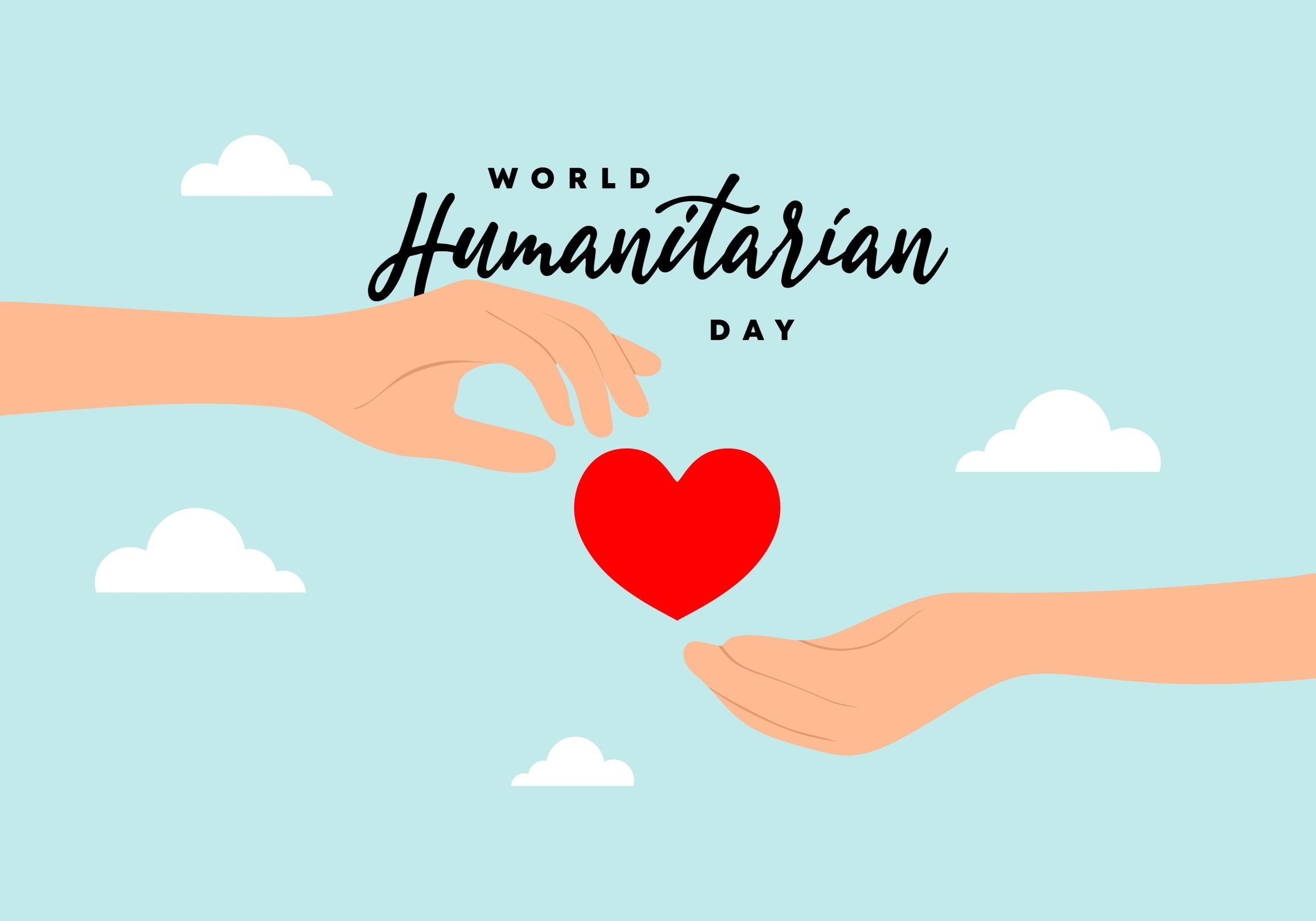
On August 19, humanitarian relief service providers worldwide are known on World Humanitarian Day. This day, which the U.N. declared in 2009, honors the anniversary of the attack on the U.N. headquarters in Iraq. Twenty-two individuals died, including the U.N.’s High Commissioner for Human Rights.
People in need all across the world get life-saving support from humanitarian relief professionals. Employees in war zones or communities that have recently suffered natural catastrophes are at risk. Since anyone and everyone can be a humanitarian, keep reading to learn more about the day and how you can participate.
Read More »When is World Humanitarian Day Celebrated?
On August 19 (Every year), World Humanitarian Day recognizes all relief and health professionals who continue to work against the odds.
They put their lives at stake to help those in need and to pay respects to humanitarian workers who lost their lives or have been hurt while working.
On August 19, 2003, a blast at the Canal Hotel in Baghdad, Iraq, claimed the lives of 22 individuals, including Sergio Vieira de Mello, the nation’s top humanitarian. This day was set aside to remember them. The U.N. General Assembly formally established World Humanitarian Day in 2009.
The History of World Humanitarian Day
World Humanitarian Day is the day set aside to recognize people who dedicate their lives to meeting the needs of others. It is a day to remember the efforts of relief workers who risk their lives to assist impacted people during times of global disaster. It serves as a reminder that these individuals greatly simplify and secure our way of life.
Humans have always needed help, as we can see from history, because of conflicts, wars, and natural disasters. Despite our advancements, we still face these issues in the 21st century. However, today’s situation is different because thousands of humanitarian aid workers have stepped forward to help people.
The Great Northern Chinese Famine, which resulted in the deaths of nearly 10 million people, is the earliest instance of a global relief effort that we are aware of. Since then, several famines, epidemics, and war-torn areas have received help. Humanitarian efforts were pushed, particularly in the wake of the Second World War’s devastation. As a result, the function of human relief workers only rose to prominence in the 20th century.
In 2009, the U.N. General Assembly passed a resolution declaring the first World Humanitarian Day. And on August 19, 2010, this event was commemorated for the first time with the subject “We are humanitarian workers.”
This day was selected as a mark of remembrance for the suicide bombing of the United Nations building in Iraq in 2003, which claimed the lives of about 22 people working in the humanitarian field, including Sergio Vieira de Mello, the chief humanitarian officer and a seasoned humanitarian aid worker from Brazil.
The United Nations (U.N.) General Assembly established the holiday in honor of the 22 U.N. humanitarian workers. They died in Baghdad’s 2003 bombing of the U.N. office, including Sérgio Vieira de Mello.
Sérgio was born and raised in Brazil and has dedicated the last three decades to helping those affected by armed conflict by providing relief and ensuring that the world is aware of their predicament. He also emphasized putting together the document for the declaration of World Humanitarian Day.
Sérgio’s campaigns strongly emphasize raising awareness. He did everything to ensure people in the First World nations and other peaceful states would get a new perspective on war-torn regions. This demonstrates that there is more to war-torn regions than just political conflict and the killing of combatants.
Sérgio attempted to humanize wars in specific ways by emphasizing the lives of defenseless people who battled to exist while being drawn into battles they had no desire to participate in.
After this unfortunate occurrence, the Sérgio Vieira Mello Foundation and the de Mello family partnered closely with the ambassadors of Switzerland, Japan, France, and Brazil at the Geneva (and New York) tables to guide the proposal to dedicate a special day through the General Assembly. The inaugural World Humanitarian Day was founded in 2009 by the U.N. General Assembly.
It commemorates the valiant humanitarian aid service providers like Sérgio, who selflessly toil every day to better the globe for the poor and those whose lives (homes and ways) are endangered by violence. At least 483 members of the relief workforce were abducted, assaulted, or killed in 2019, and the COVID-19 epidemic in 2020 did not make matters any better.
World Humanitarian Day is observed annually by the U.N. with a specific topic. You can enhance and promote awareness for the survival, well-being, and dignity of people impacted by crises and humanitarian workers’ safeness, and the theme brings together all the players in the aid ecosystem.
World Humanitarian Day was observed on one occasion with the subject “The Human Race.” The topic was intended to draw attention to the urgency created by the threat of climate change. Additionally, it brought attention to the acute effects of the climate disaster on the world’s most vulnerable citizens and gathered funds for their welfare.
World Humanitarian Day Significance:
The latest U.N. study estimates that 235 million people will need humanitarian relief in 2021. This number must have increased in the most recent year, given the status of the world at the moment. All of this seriously jeopardize the future of the world.
Therefore, the global humanitarian crisis must be addressed to prevent a global catastrophe. And that’s where human aid organizations play a crucial role. However, it is incredibly upsetting to witness human assistance workers attacked and killed in war areas while trying to help the poor.
Four hundred eighty-three members of the humanitarian sector were abducted, assassinated, or assaulted just in 2019. And the issue is not improving but instead becoming worse yearly.
And this is a significant problem that has to be solved as the authorities are required to guarantee the safety of the humanitarian aid workers in war areas. Even while it is incredibly challenging to do so in dangerous environments, the consequences would be disastrous if humanitarian assistance workers stopped being killed altogether.
The day also tries to educate the general public about this truth. Despite all the sacrifices made by human assistance workers to assist the harmed and defenseless people, they are frequently underappreciated.
This day is marked as a public awareness campaign because individuals often disregard human aid workers, don’t show them respect, or don’t pray for them, all of which are deplorable behaviors.
World Humanitarian Day Theme:
“Real Life Heroes” is the focus of this year’s World Humanitarian Day.
The previous year’s theme for this day in 2021 was “Human Race,” which emphasized the need to aid all humankind without regard to race. In addition, this theme urged all people, regardless of their differences, to cooperate to resolve the global problem.
This year’s theme, “Real Life Heroes,” focuses on the crucial role that human assistance workers play in supporting the weak and needy people worldwide.
The U.N. hopes to educate the general public about human relief workers’ challenges by focusing on this issue. This year, it is encouraged to watch and listen to tales and films highlighting human assistance workers’ labor and hardship. The U.N. would also make some videos available for public viewing. The ad will showcase the heroic tales of human assistance workers that fought the Covid-19 outbreak.
Related Questions
What Is Humanitarian Approach?
Humanitarianism is the active conviction in the worth of human life, whereby people act kindly toward one another and help others out of moral, humanitarian, and emotional motives to lessen suffering and improve situations for all people.
Why Is It Important to Celebrate World Humanitarian Day?
The goal of World Humanitarian Day, celebrated every year on August 19, is to honor all aid and medical personnel who continue to work despite the odds to save lives and defend those in need. It also serves to remember humanitarian workers who have passed away or been hurt while carrying out their duties.





